Podcast: Play in new window | Download (Duration: 47:59 — 33.2MB)
DEA and FDA makes the future of CBD unclear
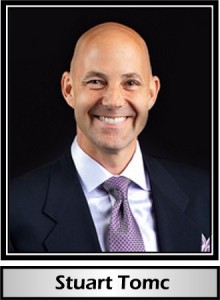
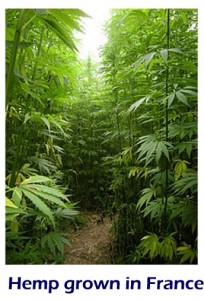 Just as the interest and availability of CBD is emerging the DEA (Drug Enforcement Administration) and the FDA (Food and Drug Administration) seem to be setting the stage for a showdown over CBD. On December 14, 2016 the DEA issued a final ruling that classified all cannabis extracts as Schedule 1 Drugs. The DEA made no distinction between psychoactive THC containing marijuana cannabis and hemp cannabis. This is one critical distinction that the DEA fails to make and therefore every form of cannabis extract is defined to be a Schedule 1 drug.
Just as the interest and availability of CBD is emerging the DEA (Drug Enforcement Administration) and the FDA (Food and Drug Administration) seem to be setting the stage for a showdown over CBD. On December 14, 2016 the DEA issued a final ruling that classified all cannabis extracts as Schedule 1 Drugs. The DEA made no distinction between psychoactive THC containing marijuana cannabis and hemp cannabis. This is one critical distinction that the DEA fails to make and therefore every form of cannabis extract is defined to be a Schedule 1 drug.
This action by DEA is signaling a hard-line position on all cannabis products. It is perhaps only a shot across the bow of the hemp industry at this moment, but it certainly has many concerned and considering how to respond to the potential threat. Just to be clear, this is not an enforcement issue. CBD continues to be available in the marketplace, but it’s future is a little more obscure. For those who have discovered the benefits of CBD, then the concern that they may lose access to CBD is genuine. The risk that CBD may become an expensive pharmaceutical drug is possible.
Some have already panicked and assumed that DEA has acted to ban CBD. NOT SO. In this interview with Stuart Tomc we will discuss exactly what has happened with DEA and what the exact challenges are. Stuart is the most well informed person I know, who can speak to these issues. Stuart will explain the challenges and why you should be concerned and be prepared to be proactive. We will also briefly touch on the emerging benefits of CBD and why there is reason to be very excited and optimistic about the future of CBD and it’s benefits to human health.
Here are some resources that will allow you to follow the story:
 1. Federal Register: Establishment of a New Drug Code for Marihuana Extract – A Rule by the DEA – Dec. 14, 2016.
1. Federal Register: Establishment of a New Drug Code for Marihuana Extract – A Rule by the DEA – Dec. 14, 2016.
2. Hemp Industries Association: The Sky is not Falling – Dec. 15, 2016 – Excerpt
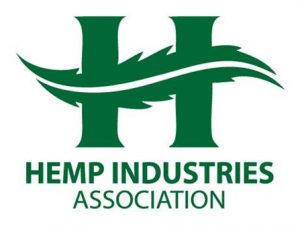 “The Final Rule published by DEA did not change the legal status of CBD. This can only be done by a scheduling action which has NOT occurred.
“The Final Rule published by DEA did not change the legal status of CBD. This can only be done by a scheduling action which has NOT occurred.
HIA has carefully reviewed this with our legal advisors and discussed it with industry experts. While there are some differing opinions on the effect of the rule, there is general agreement that yesterday’s ruling did not change the status of CBD. Here are some important facts to know:
- Cannabidiol is not listed on the federal schedule of controlled substances
- Sec. 7606 of the Farm Bill defines hemp as distinct from marijuana and does not treat it as a controlled substance when grown under a compliant state program.
- Despite these facts, DEA has stated that CBD is a controlled substance previously.
- HIA strongly disagrees with the DEA position and is ready to take action to defend should DEA take any action to block the production, processing or sale of hemp under Sec. 7606.
- The Final Rule published on December 14th was not a scheduling action but rather an administrative action related to record keeping.” End excerpt
3. Hemp Industries Association: Hemp Industries Association Responds to DEA Final Rule Regarding ‘Marijuana Extracts – Dec. 16 2016 – Excerpt:
“HIA Confirms Legality of CBD Produced from Hemp Per Farm Bill Guidelines
WASHINGTON, D.C. — The Hemp Industries Association (HIA), the leading non-profit trade association consisting of hundreds of hemp businesses, has issued its position in response to a recent DEA ruling, submitted to the Federal Register December 14, 2016, which seeks to establish a new drug code for ‘marijuana extract.’ Specifically, the DEA has proposed that CBD, and all cannabinoids derived from Cannabis Sativa L. qualify as ‘marijuana extracts,’ and require separate, distinct identification and tracking by DEA agents than other forms of ‘marijuana.’ However, the DEA maintains the contradictory assertion that all CBD products are illegal as they constitute ‘marijuana’ per the Controlled Substances Act, and will therefore “continue to be treated as Schedule I substances.”
It is the position of the Hemp Industries Association that this Final Rule regarding ‘marijuana extracts’ is not within the jurisdiction of the DEA to enact, as the administration itself cannot amend or augment the definitions put forth in the Controlled Substances Act (CSA). Adding CBD products to the federal schedule of controlled substances would require new legislation to pass in Congress or action taken by the Attorney General, amending the CSA. Additionally, the ruling is based on an incorrect and incomplete understanding of how CBD is derived from the cannabis plant. While CBD may be derived from forms of cannabis that contain high amounts of THC, the cannabinoid associated with ‘marijuana,’ CBD may also be produced from industrial hemp plants that meet the legal standards of less than 0.3% THC by dry weight, and which may be cultivated in 32 states in the U.S. per Sec. 7606 of the Farm Bill, the Legitimacy of Industrial Hemp Research amendment. Hence, not all CBD products may be classified as extracts from ‘marijuana.” End Excerpt
So is CBD a nutrient? CBD is a natural molecule that is necessary in human health. CBD benefits the human endocannabinoid system in many diverse ways. It is an herbal extract that has been used as part of human health for hundreds of years. It seems to be very safe and effective.
Is CBD a drug? Will the DEA and/or the FDA require CDB to be controlled only as a pharmaceutical drug? Is this an example of a bureaucracy attempting to benefit the pharmaceutical/medical industry to the detriment of consumers and the emerging hemp industry? Did the DEA intend to include hemp when it finalized this rule?
What about state’s rights? We have a variety of states that have legalized some aspect or another of cannabis. Whose rights will prevail and who will be the winners and losers in this battle? Will consumer rights and state’s rights prevail or will they be trampled by the DEA and big pharma?
Stay tuned. The answer to these and other questions will become clearer over time. We will keep you apprised.
Listen to my previous interviews on Plus CBD Oil.
About Stuart Tomc
Stuart Tomc is the Vice-President of Human Nutrition for CV Sciences. Mr. Tomc is a recognized authority on dietary supplements, with twenty years of experience in the nutritional health industry. Formerly the Vice President of North American Herb and Spice, where he served for 10 years, in addition to his service as Global Educator for omega-3 market leader, Nordic Naturals, Mr. Tomc is known for his extensive print interviews and contributions to noted books on integrative medicine, as well as his 4000 radio appearances. A renowned educator, Mr. Tomc recognizes CBD and its multiple mechanisms of action to support human health, and envisions a new category of dietary supplements derived from agricultural hemp.
Other important uses of hemp: image from HempInformer.com





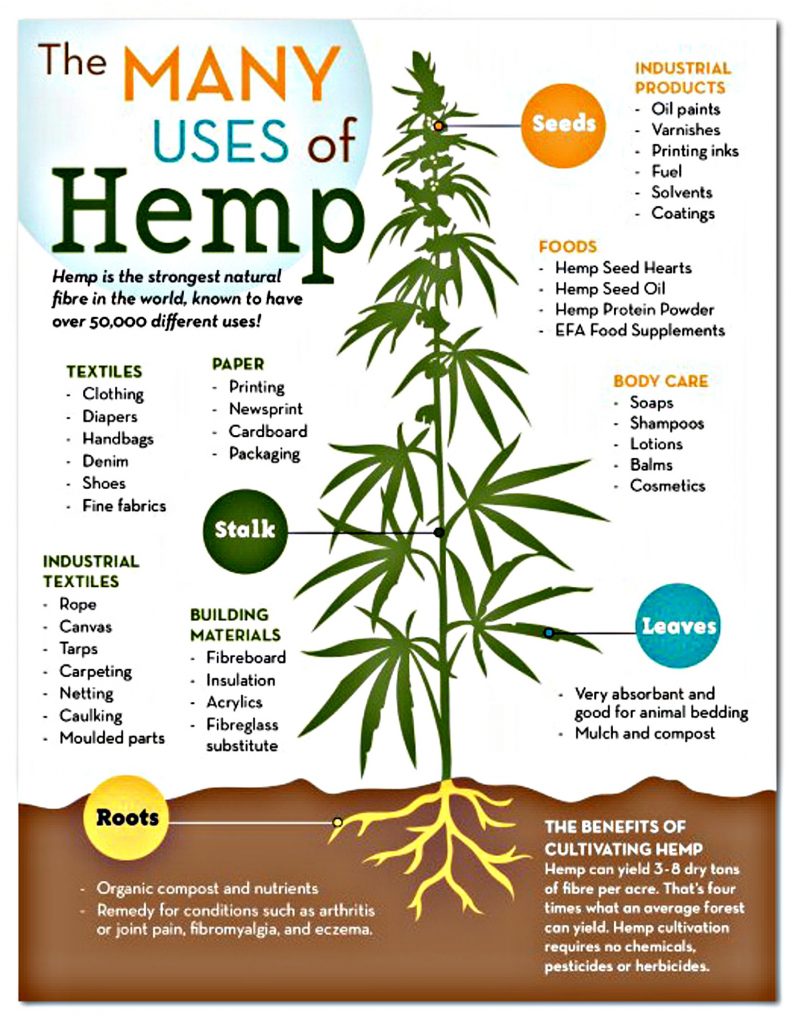

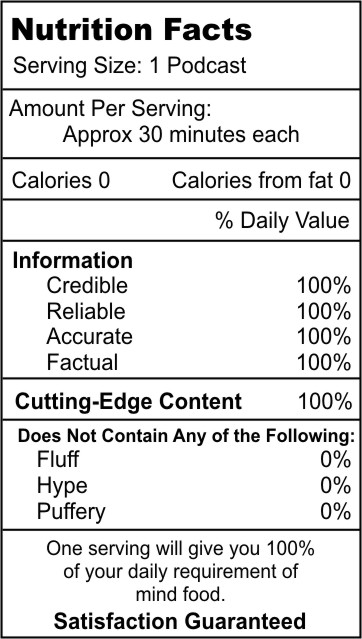




{ 0 comments… add one now }